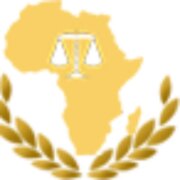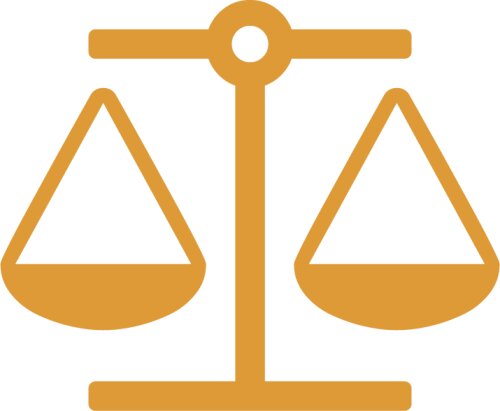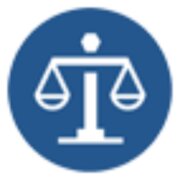Best Sports Law Lawyers in DR Congo
Share your needs with us, get contacted by law firms.
Free. Takes 2 min.
Or refine your search by selecting a city:
List of the best lawyers in DR Congo
About Sports Law in DR Congo
Sports Law in the Democratic Republic of the Congo (DR Congo) encompasses the legal regulations and principles that govern sports activities, organizations, and persons involved in sports. It covers a wide range of issues including contracts, anti-doping policies, dispute resolution, and the rights and duties of athletes, coaches, and clubs. Given the country's passion for sports, particularly soccer, basketball, and athletics, sports law plays a crucial role in ensuring fairness, integrity, and legal compliance within the sporting domain.
Why You May Need a Lawyer
There are several situations where individuals or organizations involved in sports might require legal assistance in DR Congo:
- Contract negotiations and disputes: Athletes, coaches, and sports agents may need legal help to draft, negotiate, or resolve disputes related to sports contracts and endorsements.
- Intellectual property rights: Legal advice might be needed to protect logos, brands, or personal likenesses associated with sports figures or teams.
- Doping allegations: Legal representation can be crucial for individuals facing anti-doping violations to ensure a fair trial and appropriate defense.
- Injury and liability claims: Lawyers can help manage claims involving sports injuries or disputes over liability during sporting events.
- Regulatory compliance: Organizations may need assistance to ensure compliance with national and international sports regulations.
Local Laws Overview
DR Congo's legal landscape for sports involves various national regulations and guidelines that address the governance of sports organizations, athletes’ rights, and ethical norms in sports. Key aspects include:
- Federation oversight: National sports federations oversee different sports, setting rules and standards for participation and competition.
- Anti-doping regulations: The country adheres to World Anti-Doping Agency (WADA) standards to prevent performance-enhancing drug use.
- Labor laws: Employment regulations for athletes and sports professionals concerning working conditions, wages, and contracts.
- Dispute resolution: Legal frameworks are in place for resolving disputes through arbitration or in the courts, particularly for contract issues and controversies within federations.
Frequently Asked Questions
What is Sports Law?
Sports Law refers to the body of regulations and legal principles that govern sports activities and organizations.
Who enforces sports regulations in DR Congo?
Sports regulations in DR Congo are primarily enforced by national sports federations, with oversight from the Ministry of Sports and Youth.
How can I protect my intellectual property as an athlete?
Athletes can protect their intellectual property, such as brands and images, through trademark registrations and legal contracts.
What are my options if I face doping allegations?
You should seek legal advice immediately to understand the charges, prepare a defense, and engage in a fair process with the appropriate authorities.
Can a lawyer help me negotiate better contracts?
Yes, a lawyer specializing in sports law can assist in negotiating favorable terms and conditions in contracts and endorsements.
What should I do if I get injured during a sporting event?
If injured, consult a legal professional to explore compensation claims and verify liability coverage under your current contracts or through event organizers.
Are there specific laws for female athletes in DR Congo?
While general labor and sports regulations apply to all athletes, advocacy groups are working towards addressing gender-specific issues in sports law.
What does anti-doping regulation involve?
Anti-doping regulation includes rules against the use of banned substances and outlines testing protocols, sanctions, and athlete rights.
How can sports organizations ensure legal compliance?
Regular legal audits, staying updated with local and international regulations, and consulting with sports law experts help ensure compliance.
Where can I find legal representation for sports-related issues?
Numerous law firms and independent lawyers in DR Congo specialize in sports law and can provide representation and legal advice.
Additional Resources
For more information or assistance, consider reaching out to these entities:
- Ministry of Sports and Youth: The governmental body responsible for sports policy and regulation.
- National Sports Federations: Each sport has its federation that oversees adherence to rules and regulations.
- Local Bar Associations: Can provide referrals to qualified sports law attorneys.
- World Anti-Doping Agency (WADA): Offers resources related to anti-doping policies and athlete rights.
Next Steps
If you require legal assistance in sports law, consider these steps:
- Research and identify lawyers or law firms specializing in sports law in DR Congo.
- Seek a referral from local sports organizations or federations.
- Schedule a consultation to discuss your specific needs and circumstances.
- Prepare relevant documents and information related to your legal issue for a more effective consultation.
Engaging a skilled lawyer can help protect your interests and ensure compliance with applicable laws and regulations in the dynamic field of sports law.
Lawzana helps you find the best lawyers and law firms in DR Congo through a curated and pre-screened list of qualified legal professionals. Our platform offers rankings and detailed profiles of attorneys and law firms, allowing you to compare based on practice areas, including Sports Law, experience, and client feedback.
Each profile includes a description of the firm's areas of practice, client reviews, team members and partners, year of establishment, spoken languages, office locations, contact information, social media presence, and any published articles or resources. Most firms on our platform speak English and are experienced in both local and international legal matters.
Get a quote from top-rated law firms in DR Congo — quickly, securely, and without unnecessary hassle.
Disclaimer:
The information provided on this page is for general informational purposes only and does not constitute legal advice. While we strive to ensure the accuracy and relevance of the content, legal information may change over time, and interpretations of the law can vary. You should always consult with a qualified legal professional for advice specific to your situation.
We disclaim all liability for actions taken or not taken based on the content of this page. If you believe any information is incorrect or outdated, please contact us, and we will review and update it where appropriate.
Browse sports law law firms by city in DR Congo
Refine your search by selecting a city.












